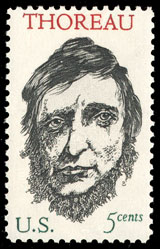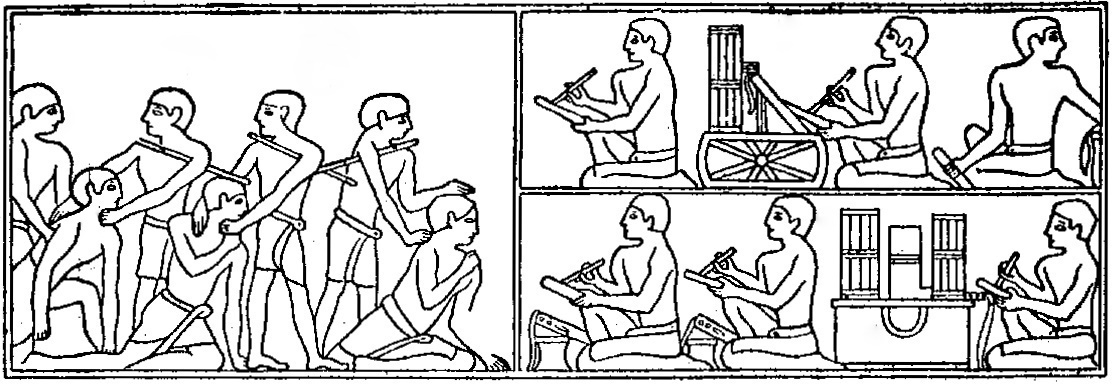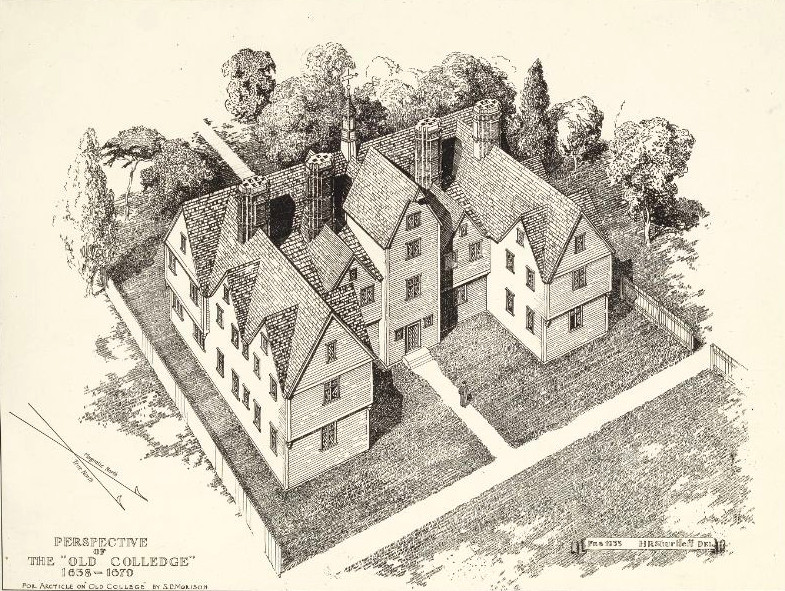|
Thoreau
Henry David Thoreau (born David Henry Thoreau; July 12, 1817May 6, 1862) was an American naturalist, essayist, poet, and philosopher. A leading transcendentalist, he is best known for his book ''Walden'', a reflection upon simple living in natural surroundings, and his essay "Civil Disobedience" (originally published as "Resistance to Civil Government"), an argument in favor of citizen disobedience against an unjust state. Thoreau's books, articles, essays, journals, and poetry amount to more than 20 volumes. Among his lasting contributions are his writings on natural history and philosophy, in which he anticipated the methods and findings of ecology and environmental history, two sources of modern-day environmentalism. His literary style interweaves close observation of nature, personal experience, pointed rhetoric, symbolic meanings, and historical lore, while displaying a poetic sensibility, philosophical austerity, and attention to practical detail.Thoreau, Henry David. ' ... [...More Info...] [...Related Items...] OR: [Wikipedia] [Google] [Baidu] |
Walden
''Walden'' (; first published as ''Walden; or, Life in the Woods'') is an 1854 book by American transcendentalism, transcendentalist writer Henry David Thoreau. The text is a reflection upon the author's simple living in natural surroundings. The work is part personal declaration of independence, social experiment, voyage of spiritual discovery, satire, and—to some degree—a manual for Self-sustainability, self-reliance. ''Walden'' details Thoreau's experiences over the course of two years, two months, and two days in a cabin he built near Walden Pond amidst woodland owned by his friend and mentor Ralph Waldo Emerson, near Concord, Massachusetts, Concord, Massachusetts. Thoreau makes precise scientific observations of nature as well as metaphorical and poetic uses of natural Phenomenon, phenomena. He identifies many plants and animals by both their popular and scientific names, records in detail the color and clarity of different bodies of water, precisely dates and describe ... [...More Info...] [...Related Items...] OR: [Wikipedia] [Google] [Baidu] |
Civil Disobedience (Thoreau)
"Resistance to Civil Government", also called "On the Duty of Civil Disobedience" or "Civil Disobedience", is an essay by American transcendentalist Henry David Thoreau, first published in 1849. In it, Thoreau argues that individuals should prioritize their conscience over compliance with unjust laws, asserting that passive submission to government authority enables injustice. Thoreau was motivated by his opposition to slavery and the Mexican–American War (1846–1848), which he viewed as morally and politically objectionable. The essay has had a significant impact on political thought and activism, influencing figures such as Mahatma Gandhi, who adopted its principles in the struggle for Indian independence, and Martin Luther King Jr., who cited it as a key influence during the American civil rights movement. Its themes of individual responsibility and resistance to injustice have made it a foundational text in the philosophy of nonviolent protest and civil di ... [...More Info...] [...Related Items...] OR: [Wikipedia] [Google] [Baidu] |
Civil Disobedience
Civil disobedience is the active and professed refusal of a citizenship, citizen to obey certain laws, demands, orders, or commands of a government (or any other authority). By some definitions, civil disobedience has to be nonviolent to be called "civil". Hence, civil disobedience is sometimes equated with peaceful protests or nonviolent resistance. Henry David Thoreau's essay ''Resistance to Civil Government'', first published in 1849 and then published posthumously in 1866 as ''Civil Disobedience (Thoreau), Civil Disobedience'', popularized the term in the US, although the concept itself was practiced long before this work. Various forms of civil disobedience have been used by prominent activists, such as Women's suffrage in the United States, American women's suffrage leader Susan B. Anthony in the late 19th century, Egyptian nationalist Saad Zaghloul during the 1910s, and Indian nationalist Mahatma Gandhi in 1920s British Raj, British India as part of his leadership of the ... [...More Info...] [...Related Items...] OR: [Wikipedia] [Google] [Baidu] |
Concord, Massachusetts
Concord () is a town in Middlesex County, Massachusetts, United States. In the 2020 United States census, 2020 census, the town population was 18,491. The United States Census Bureau considers Concord part of Greater Boston. The town center is near where the Sudbury River, Sudbury and Assabet River, Assabet rivers join to form the Concord River. The town was established in 1635 by a group of Colonial history of the United States, English settlers; by 1775, the population had grown to 1,400. As dissension between colonists in North America and the British crown intensified, 700 troops were sent to confiscate militia ordnance stored at Concord on April 19, 1775.#Chidsey, Chidsey, p. 6. This is the total size of Smith's force. The ensuing conflict, the battles of Lexington and Concord, were the incidents (including the shot heard round the world) which triggered the American Revolutionary War. A rich literary community developed in Concord during the mid-19th century, centered ar ... [...More Info...] [...Related Items...] OR: [Wikipedia] [Google] [Baidu] |
Transcendentalism
Transcendentalism is a philosophical, spiritual, and literary movement that developed in the late 1820s and 1830s in the New England region of the United States. "Transcendentalism is an American literary, political, and philosophical movement of the early nineteenth century, centered around Ralph Waldo Emerson." A core belief is in the inherent goodness of people and nature, and while society and its institutions have corrupted the purity of the Individualism, individual, people are at their best when truly "self-Reliance, self-reliant" and independent. Transcendentalists saw divine experience inherent in the everyday. They thought of physical and spiritual phenomena as part of dynamic processes rather than discrete entities. Transcendentalism is one of the first philosophical currents that emerged in the United States;Coviello, Peter. "Transcendentalism" ''The Oxford Encyclopedia of American Literature''. Oxford University Press, 2004. ''Oxford Reference Online''. Web. 23 Oct. 2 ... [...More Info...] [...Related Items...] OR: [Wikipedia] [Google] [Baidu] |
Simple Living
Simple living refers to practices that promote simplicity in one's lifestyle. Common practices of simple living include reducing the number of possessions one owns, depending less on technology and services, and spending less money. In addition to such external changes, simple living also reflects a person's mindset and values. Simple living practices can be seen in history, religion, art, and economics. Adherents may choose simple living for a variety of personal reasons, such as spirituality, health, increase in quality time for family and friends, work–life balance, personal taste, financial sustainability, increase in philanthropy, frugality, environmentalism, environmental sustainability, or reducing Stress (biology), stress. Simple living can also be a reaction to economic materialism and consumer culture. Some cite sociopolitical goals aligned with environmentalist, Anti-consumerism, anti-consumerist, or anti-war movements, including Conservation (ethic), conservation, de ... [...More Info...] [...Related Items...] OR: [Wikipedia] [Google] [Baidu] |
Tax Resistance
Tax resistance is the refusal to pay tax because of opposition to the government that is imposing the tax, or to government policy, or as opposition to taxation in itself. Tax resistance is a form of direct action and, if in violation of the tax regulations, also a form of civil disobedience. Tax resisters are distinct from " tax protesters", who deny that the legal obligation to pay taxes exists or applies to them. Tax resisters may accept that some law commands them to pay taxes but they still choose to resist taxation. Examples of tax resistance campaigns include those advocating home rule, such as the Salt March led by Mahatma Gandhi, and those promoting women's suffrage, such as the Women's Tax Resistance League. War tax resistance is the refusal to pay some or all taxes that pay for war and may be practiced by conscientious objectors, pacifists, or those protesting against a particular war. History The earliest and most widespread forms of taxation were the corvée a ... [...More Info...] [...Related Items...] OR: [Wikipedia] [Google] [Baidu] |
Environmentalism
Environmentalism is a broad philosophy, ideology, and social movement about supporting life, habitats, and surroundings. While environmentalism focuses more on the environmental and nature-related aspects of green ideology and politics, ecologism combines the ideology of social ecology and environmentalism. ''Ecologism'' is more commonly used in continental European languages, while ''environmentalism'' is more commonly used in English but the words have slightly different connotations. Environmentalism advocates the preservation, restoration and improvement of the natural environment and critical earth system elements or processes such as the climate, and may be referred to as a movement to control pollution or protect plant and animal diversity. For this reason, concepts such as a land ethics, environmental ethics, biodiversity, ecology, and the biophilia hypothesis figure predominantly. The environmentalist movement encompasses various approaches to addressing envi ... [...More Info...] [...Related Items...] OR: [Wikipedia] [Google] [Baidu] |
Development Criticism
Postdevelopment theory (also post-development or anti-development or development criticism) is a critique of the concept and practice of modernization and development as promoted by Western political powers in the Third World. Postdevelopment thought arose in the 1990s as a set of criticisms against development projects led by Western nations and legitimized under development theory. For postdevelopment theorists, "development" is an ideological concept that works to preserve the hegemony of the Global North while increasing the dependency of the Global South. Thus, postdevelopment theory argues for "alternatives to development" or "bottom-up" approaches to development, as determined by the peoples in the Third World. Development as ideology The postdevelopment critique holds that modern development theory is a creation of academia in tandem with an underlying political and economic ideology. The academic, political, and economic nature of development means it tends to be poli ... [...More Info...] [...Related Items...] OR: [Wikipedia] [Google] [Baidu] |
Harvard College
Harvard College is the undergraduate education, undergraduate college of Harvard University, a Private university, private Ivy League research university in Cambridge, Massachusetts, United States. Part of the Harvard Faculty of Arts and Sciences, Faculty of Arts and Sciences, Harvard College is Harvard University's traditional undergraduate program, offering BA (Bachelor of Arts) and BS (Bachelor of Science) degrees. It is highly selective, with fewer than four percent of applicants being offered admission as of 2022. Harvard College students participate in over 450 extracurricular organizations and nearly all live on campus. First-year students reside in or near Harvard Yard while upperclass students reside in other on-campus housing. History Harvard College was founded in 1636 by vote of the Massachusetts General Court, Great and General Court of the Massachusetts Bay Colony. Two years later, the college became home to North America's first known printing press, carri ... [...More Info...] [...Related Items...] OR: [Wikipedia] [Google] [Baidu] |
Environmental History
Environmental history is the study of Human impact on the environment, human interaction with the natural world over time, emphasising the active role nature plays in influencing human affairs and vice versa. Environmental history first emerged in the United States out of the environmentalism, environmental movement of the 1960s and 1970s, and much of its impetus still stems from present-day global environmental concerns. The field was founded on conservation issues but has broadened in scope to include more general social and scientific history and may deal with cities, population or sustainability, sustainable development. As all history occurs in the natural world, environmental history tends to focus on particular time-scales, geographic regions, or key themes. It is also a strongly multidisciplinary subject that draws widely on both the humanities and natural science. The subject matter of environmental history can be divided into three main components. The first, nature it ... [...More Info...] [...Related Items...] OR: [Wikipedia] [Google] [Baidu] |
19th-century Philosophy
In the 19th century, the philosophers of the 18th-century Age of Enlightenment, Enlightenment began to have a dramatic effect on subsequent developments in philosophy. In particular, the works of Immanuel Kant gave rise to a new generation of German philosophers and began to see wider recognition internationally. Also, in a reaction to the Enlightenment, a movement called Romanticism began to develop towards the end of the 18th century. Key ideas that sparked changes in philosophy were the fast progress of science, including evolution, most notably postulated by Charles Darwin, Alfred Russel Wallace and Jean-Baptiste Lamarck, and theories regarding what is today called Emergence, emergent order, such as the free market of Adam Smith within nation states, or the Marxist approach concerning class warfare between the ruling class and the working class developed by Karl Marx and Friedrich Engels. Pressures for egalitarianism, and more rapid change culminated in a period of revolution ... [...More Info...] [...Related Items...] OR: [Wikipedia] [Google] [Baidu] |








